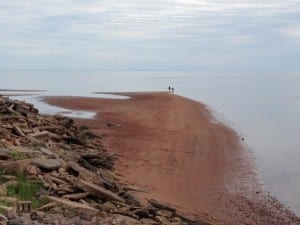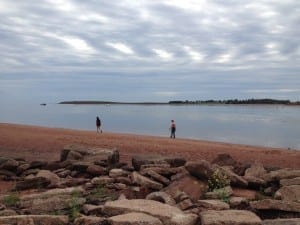Would a workplace without managers work?
A July 29, 2015 Globe and Mail article is entitled: “Holacracy: Would a workplace without managers work?”
The article highlights an approach to getting things done that strongly appeals to me.
In 30 years of volunteer work, it’s been my anecdotal experience that what I like to call a flat-hierachy approach to getting things done is the approach that works the best for me. It’s an approach that dates back to when I ran for the position of President of the Student Council at Malcolm Campbell High School in 1962.
Other volunteers will have other experiences, will have other ways of getting things done. I’m aware that my own approach is one of many ways in which volunteer projects can be organized.
I’ve addressed this topic in a previous post:
The solution is located within the problem; the solution gives rise to another great problem.
In the larger context, talk of flat-hierarchy structures is limited by the fact that, in many ways, money is where power lies and money talks. I’ve explored this topic most recently in a post entitled:
Masters of the Universe (2012) features historical analysis of neoliberalism.
An interesting paper from Ryerson University, on the relationship between neoliberalism and the volunteer sector, that I came across recently, is entitled:
The paper helps me advance my understanding of what a Jane’s Walk entails, in particular with regard to the distinction, as with anything else, between 1) Jane’s Walk as a brand and 2) Jane’s Walk as a back story, or as a reality distinct from whatever a brand is capable of encapsulating. For the past four years, I’ve been involved, as one of my volunteer activities, in organizing and publicizing Jane’s Walks in my local community and nearby communities.
The distinction between brand and back story is similarly of interest, with regard to the Fair Trade concept. Similarly, the distinction applies to an evidence-based study of Buddhisms.
Even in organizations known for empowerment
“Even in organizations known for empowerment,” Harvey Schacter notes in the July 29, 2015 Globe and Mail article, to return to the article, “it’s the leader who liberates others, signalling where control lies.”
That comment was of much interest to me. Occasionally, I’ve joked that whenever I’ve accumulated power, in cases where I’ve had a formal title within some volunteer organization, I’ve make a point of giving it away as quickly as I can.
The quote from Harvey underlines, for me, the fact that it’s not a sensible thing, in a truly flat-hierarchy organization, to speak of anybody “empowering” anybody else. That is to say, jokes aside, I’ve never had any power, in my own volunteer work, to give away.
As a volunteer, for example in my role as a member of the MCHS 2015 organizing team, I see myself as an information coordinator, and also as one node in a network of contacts, a network in which there are many nodes.
Harvey Schacter, Globe and Mail writer
Harvey Schacter, as the above-mentioned article notes, is “a Kingston, Ont.-based writer specializing in management issues. He writes Monday Morning Manager and management book reviews for the print edition of Report on Business and an online work-life column Balance. E-mail: harvey@harveyschachter.com.”
Harvey has played a key role in the organizing of this Reunion. He helped us to decide on the date of the event.
In an early email message, Harvey Scahcter noted that mid-October is better than some later date, such as in November, because the time arrives when the snow begins to fly. We took his observation closely into account. We owe thanks as well to Howard Hight, who joined in the planning conversations as soon as he heard that planning was under way. He said (I paraphrase): “Choose a date, and do it soon.”
Holacracy
Does ‘holacracy’ have traction as a concept? I wouldn’t know. The book that is reviewed in the above-noted Globe and Mail article is available at the Toronto Public Library: Holacracy: The New Management System for A Rapidly Changing World (2015).
I’ve had a habit for many years of having 50 books on loan, at a time, from the Toronto Public Library, but currently I’m taking a break from such reading. I have enough material, gathered to date, to last me for quite some time, before I borrow another library book.
As well, my focus at the moment is on the aspects of the MCHS 2015 Reunion that I’m in a position to help out with.
July 28, 2015 meeting of the MCHS 2015 Event Committee in St. Williams, Ontario
I’m currently working on a report on the meeting that we had on July 28, 2015 of the MCHS 2015 Event Committee. The meeting was on this occasion held at the home of Gina (Davis) Cayer and Dan Cayer (Gina’s husband) in St. Williams, Ontario.
I learned so many great things about horses and pigeons, in spending time at Gina and Dan’s farm on July 28, 2015, that I had never known about. Among other things, Dan spoke with me about how he used to get polo horses sent to him, so that he could train them to stop properly, when the time came for them to put the brakes on during a polo match. That story brought to mind the stories we have shared in the past about the Polo Fields of Saraguay.
St. Williams is near the shore of Lake Erie, south of Kitchener (where we usually have our Event Committee meetings) and west of Port Dover. My wife and daughter and I rented a car for this occasion, and had a great time travelling to St. Williams and back. Along the way, we stopped at a farm stand to buy some fresh corn. Fresh corn, at this time of year, tastes so much better than even the best corn that you can buy at a supermarket, in my anecdotal experience.
I will write up a report on the meeting as soon as I can, which I’m hoping will be sooner than some previous reports, which have taken a few weeks to put together.
Key points from July 28, 2015 meeting
The Event Committee will now be focusing on doing what we can, to ensure that Alumni, who have said they were going to attend, will send in their cheques and complete their registrations prior to the October 1, 2015 deadline for registration via Canada Post. After that date, payment for the event can only be made by cash, at the door.
As well, the deadline for hotel accommodations, at the two hotels where we have priority rates for MCHS 2015 Attendees, is September 17, 2015. After that date, rooms at the Reunion rate may or may not be available.
To date, 44 people have resisted for the Reunion; we’re hoping to see 20 more registrations coming in, at least.
Storytelling, one person at a time
Another key decision, from my perspective, is that we’ve dropped the idea of having a Storytelling Panel at the Reunion. Storytelling will be a key part of the Reunion, and will occur on a person-to-person basis, at the Business Card Game at the start of the Reunion, and in the informal conversations, one person in conversation with another, that will be a key part of the Humber Dinner Buffet and of all aspects of the entire evening, and in the events that are scheduled for the Day Before, the Day Of (Prior to 6:00 pm), and the Day After.
I’ve had some conversations with MCHS alumni in the past about the concept of a Storytelling Panel. I will use the information, which has been valuable, that I’ve gained from those conversations, in my own work as it related to information sharing, in connection with the Reunion, and in connections with other community self-organzing projects that I’m involved with.
The other highlight, among many other things, from the meeting, is that I’ve been able to get a much better picture of some of the stories related to some of the people that I knew at Malcolm Campbell High School. When you’re dealing with anecdotal evidence, about who did what, and when, it’s so valuable to get information from many sources.
It’s so valuable to find ways to corroborate information, or to find that information is not corroborated. Serving as reporter, with a focus on balanced and evidence-based reporting, and deciding on what information is useful to report, and what is not useful to report, is a key part of my work as a volunteer.
Small Arms Building in Mississauga
In a subsequent post, I will share some photos and highlights from the meeting. This morning, I’ll be attending a media event in Mississauga, regarding the next stage for the Small Arms Building, about which I’ve written extensively in previous posts. Before that, I will go for a morning run, along a trail that takes me along the shoreline of Lake Ontario, and a trail that runs not far from the Small Arms building.
It’s my hope that your day, on this hot summer day in July (at least it’s hot in Toronto; when we were on Prince Edward Island last week, it was nice and cool) is going well – and that you will be joining us, as an MCHS Alumna or Alumnus, on October 17, 2015 at Old Mill Toronto.




Leave a Reply
Want to join the discussion?Feel free to contribute!